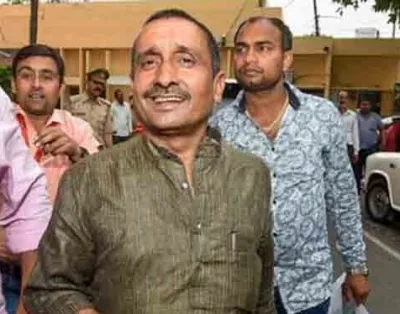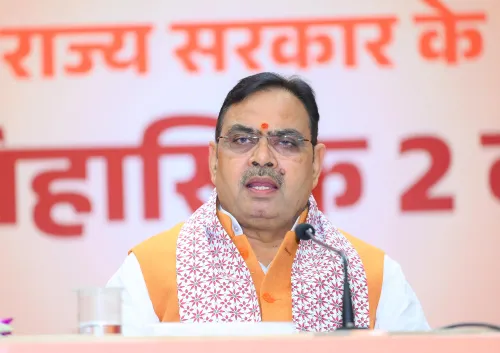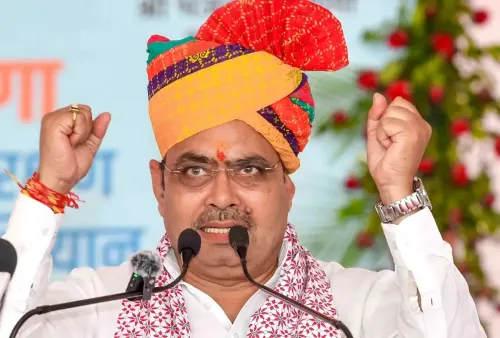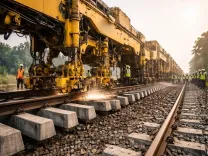Is Raising Almatti Dam Height Karnataka's Right? BJP MPs Challenge Maharashtra's Objections
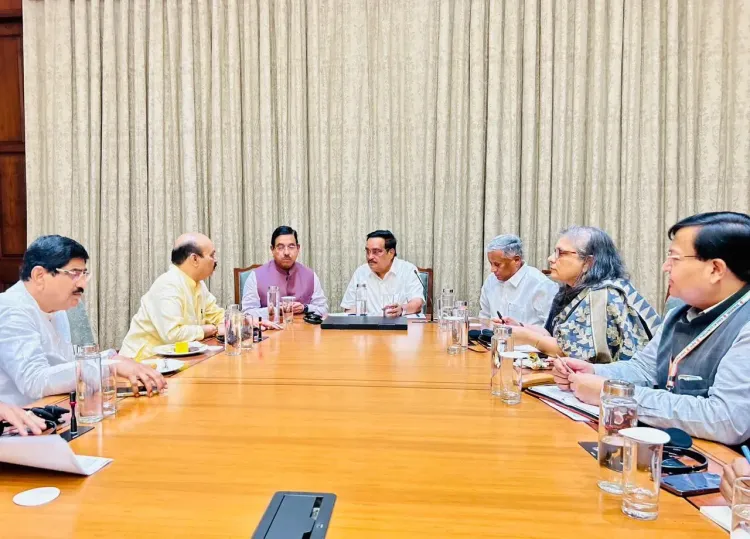
Synopsis
Key Takeaways
- Karnataka has the legal right to increase the Almatti Dam height as per the Krishna Water Disputes Tribunal.
- Maharashtra's objections to the height increase are viewed as ill-intentioned by Karnataka officials.
- A joint survey found no risk of flooding from the dam's height increase.
- The Karnataka government is urged to expedite the Supreme Court's hearing on the matter.
- The Inter-State River Water Disputes Act offers a legal framework for resolving such disputes.
Bengaluru, Aug 7 (NationPress) A group of BJP MPs from Karnataka, led by Union Minister Pralhad Joshi, recently met with Union Jal Shakti Minister C.R. Paatil to discuss the concerns raised by Maharashtra regarding the proposed elevation of the Almatti Dam. The delegation asserted that Maharashtra's opposition to the dam height increase was ill-intentioned.
During their meeting in Delhi, the team informed C.R. Paatil that the Maharashtra government's resistance to the proposed height increase from 519 meters to 524 meters under the second phase of the Upper Krishna Project was both unnecessary and condemnable.
The MPs emphasized their point by referencing the Krishna Water Disputes Tribunal's order, which clearly states that raising the Almatti Dam's height is an inherent right of Karnataka.
After the discussions, former Karnataka Chief Minister and MP Basavaraj Bommai spoke to the media, indicating that the Maharashtra Chief Minister, Devendra Fadnavis, alongside a group of Maharashtra MPs, had previously approached the Union Water Resources Minister to voice their dissent against the height increase.
Bommai reiterated that Maharashtra's objections to the dam height elevation are baseless and driven by ulterior motives.
According to the 'Krishna Tribunal 2', the approval to raise the Almatti Dam's height to 524 meters is officially sanctioned.
A comprehensive joint survey conducted by the Centre and three state governments, which included a hydrological study, concluded that increasing the dam's height would not result in flooding.
Even during the floods in 2005, the Central Water Commission had confirmed that there would be no flooding in Sangli and Kolhapur, Maharashtra, due to the dam's operations. Thus, Bommai argued that Maharashtra's objections are unwarranted and appear to arise from ill intent.
"The tribunal's order carries the same weight as a Supreme Court decree, and the right to elevate the Almatti Dam's height is firmly ours. We have communicated our stance clearly to the Union Minister. The Gazette notification is currently pending before the Supreme Court, and the government will adhere to the court's directives. The Minister has assured us that all actions will remain within legal boundaries," Bommai stated.
He urged the Karnataka government to exert all efforts to ensure the Supreme Court addresses the matter promptly and facilitates the issuance of the Gazette notification.
In response to inquiries about the Almatti dispute, Bommai highlighted the existence of the Inter-State River Water Disputes Act.
Under Section 3, once a formal complaint is lodged, the Central government establishes a tribunal that conducts hearings and issues rulings, which hold the same authority as a Supreme Court decree. He noted that similar processes occurred in the Cauvery case, which took about 10-12 years for the Supreme Court to direct the issuance of a Gazette notification. The Constitution empowers the Supreme Court to act accordingly, he added.
The delegation also featured BJP MPs Govind Karjol, P.C. Gaddigoudar, Ramesh Jigajinagi, along with officials from the Union Jal Shakti Ministry.



